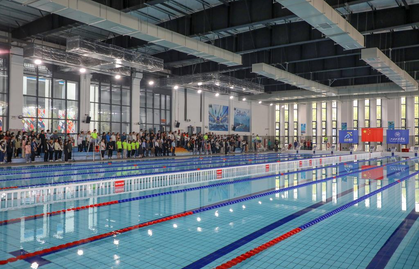Why Pool Water Treatment Matters
Clean and safe swimming pool water is essential not only for user health but also for the long-term performance of pool facilities. Poorly managed water can cause:
-
Skin and eye irritation
-
Respiratory and intestinal infections
-
Equipment corrosion and higher maintenance costs
-
Legal and public health risks
As the global swimming pool market grows—driven by wellness, sports, tourism, and hospitality—advanced water treatment technologies are becoming the standard for ensuring safety and efficiency.

Common Contaminants in Pool Water
Pool water can be affected by several types of pollutants:
-
Physical: suspended particles, oils, organic debris
-
Chemical: excess chlorine, pH regulators, sunscreen, cosmetics
-
Microbiological: bacteria, viruses, fungi, parasites
-
Environmental: heat pollution, airborne dust, and swimmer-introduced contaminants
Without proper treatment, these pollutants degrade water quality and create health and operational risks.
Key Pool Water Treatment Technologies
1. Circulation and Filtration
-
Sand filters and diatomaceous earth filters
-
Ceramic ultrafiltration membranes with up to 20 years of lifespan
-
Removes suspended solids, improves clarity, reduces replacement costs
2. Disinfection Systems
-
Chlorination: common but requires careful dosing
-
Ozone disinfection: high efficiency, no harmful residues
-
UV sterilization: chemical-free microbial control
-
Salt electrolysis: eco-friendly chlorine production
3. Water Balance and Algae Control
-
Maintain pH between 7.2–7.8 for optimal disinfection
-
Copper sulfate and algaecides for algae prevention
-
Shock chlorination for outbreaks
Advanced Equipment Driving the Market
-
Ceramic Ultrafiltration Membranes: durable, chemically stable, and low-maintenance
-
Ozone Generators: reduce chlorine use and protect equipment
-
Sodium Hypochlorite Generators: on-site chlorine production from saltwater
These technologies enhance sustainability, operational efficiency, and cost savings for pool operators.
Real-World Applications
Recent projects highlight how advanced water treatment is applied at scale:
-
Hangzhou Olympic Sports Center (China) – Diatomaceous earth filters + ozone disinfection for competition-level standards.
-
Sanya Atlantis Waterpark – Multi-system filtration and real-time monitoring for 19,000 m³ of pool water.
-
Yancheng Marriott Hotel – UV disinfection and automated circulation for luxury hospitality.
These cases demonstrate how cutting-edge pool treatment systems meet the needs of sports venues, waterparks, and high-end hotels.
The Future of Pool Water Treatment
As sustainability and health standards become stricter, the swimming pool industry is shifting toward:
-
Eco-friendly disinfection with ozone and salt electrolysis
-
Long-lifespan filtration using ceramic membranes
-
Automated monitoring to ensure stable pH, chlorine, and water balance
Investing in these technologies ensures better water safety, reduced operating costs, and compliance with international health standards.
